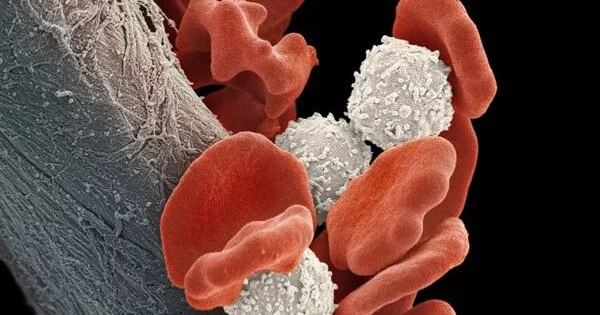There is some evidence that bariatric surgery may reduce the risk of certain forms of cancer, especially haematological (blood) tumors. It is crucial to highlight, however, that the association between bariatric surgery and cancer risk is complex, and additional research is required to completely understand the mechanisms involved.
Obesity surgery reduces the incidence of haematological cancer by 40%. This was demonstrated in a study conducted at the University of Gothenburg. This apparent correlation is expected to affect future field research.
Previous research has revealed that being overweight or obese is a risk factor for various forms of cancer. Obese women are likewise more likely to develop cancer than their male counterparts, and the risk level reduces with intentional weight loss. However, there is limited evidence of a relationship between obesity, weight loss, and haematological malignancy.
The latest study, published in the journal Lancet Healthy Longevity, included data from the Swedish Obese Subjects (SOS) study at the University of Gothenburg as well as data from the National Board of Health and Welfare’s Cancer Registry.
The surgery’s benefit is linked to baseline blood glucose levels. The lower risk of haematological cancer was much more pronounced if the women’s blood sugar levels were high at the start, demonstrating that blood sugar is an important factor in cancer development.
Magdalena Taube
The researchers studied 2,007 people who underwent bariatric surgery and compared them to a control group of 2,040 individuals, also obese, who did not undergo surgery. The groups were otherwise comparable in terms of e.g., gender, age, body composition, cardiovascular risk factors and psychosocial variables.
Most significant improvements in women
During the follow-up period, 34 people in the surgery group had haematological malignancy, while also losing a lot of weight. In the control group, the corresponding number was 51 haematological malignancies, with the group remaining at the level of severe obesity.
When the blood malignancies were analyzed independently, there was a 55% reduction in the incidence of lymphoma in the group that had undergone bariatric surgery. For all blood malignancies, the comparable risk reduction was 40%.

Women with high blood sugar at the outset of the study, in particular, appeared to benefit from bariatric surgery. According to Magdalena Taube, corresponding author of the study and Associate Professor of Molecular and Clinical Medicine at Sahlgrenska Academy, University of Gothenburg.
“The surgery’s benefit is linked to baseline blood glucose levels. The lower risk of haematological cancer was much more pronounced if the women’s blood sugar levels were high at the start, demonstrating that blood sugar is an important factor in cancer development,” she says.
Mechanisms with complex relationships
According to the study’s authors, the mechanisms underlying the association between obesity and blood malignancies are complex and involve a number of components, including chronic inflammation and clonal hematopoiesis, a sort of genetically connected risk factor for blood cancer. They speculate that the metabolic changes that occur following bariatric surgery, such as decreased inflammation, may lessen the incidence of cancer.
“The findings support the notion that obesity is a risk factor for haematological cancer and that bariatric surgery can reduce the risk of blood cancer in obese women,” says Magdalena Taube, Associate Professor of Molecular and Clinical Medicine at the Sahlgrenska Academy, University of Gothenburg and the study’s corresponding author.
















